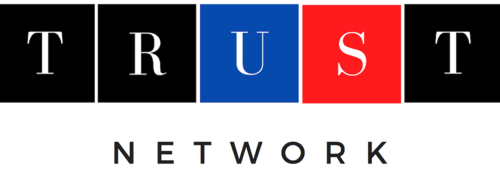FAQs
A broad network/platform designed to prevent and mitigate violence stimulated by underlying social issues in the US.
For all inquiries, please email us here: info@thetrustnetwork.net
What is EWER, or EWEA?
EWER stands for Early Warning and Early Response. Together with many of our colleagues in the international field, we are moving towards using the phrase EWEA for Early Warning and Early Action, to reflect the fact that the system is responsive to long-term and underlying issues, not only reactive to incidents and emergencies. On both levels, an EWER or EWEA system picks up signals that violence may be brewing in a particular time and place, and communicates those signals to persons who may be able to mitigate or prevent the violence.
EWER or EWEA at a local level has proven to be effective in preventing violence in multiple countries going through complex social upheaval.
Every country -- in fact every region and even every community -- has its own social norms and structures. It follows that any EWEA system must be customized to the setting in which it is used.
What is the TRUST Network doing?
We are doing several things that intersect and enhance each other. We act as a networking hub to develop collaboration across what might otherwise be siloed fields: peacebuilding, social justice, and democracy work. That includes connecting national-level expertise and advocacy to local initiatives, convened by community mediation and justice centers on the ground, so that communities are supported in generating their own solutions to their local needs. It also includes helping independent individuals find the best way to contribute their skills and energies to their communities. To inform the entire effort we are creating and customizing an Early Warning and Early Action system that will help collect and disseminate the information that people need in order to address issues at the needed time.
We are growing this EWEA system with the long-term future in mind. We believe that addressing the divisions in our country and developing and sustaining positive peace — peacefulness based in community, justice and stability — require attention and commitment for the long haul, not just to get through moments of crisis.
How does the Early Warning system work, and what does it accomplish?
Individuals trained to deliver trustworthy information send information about rising tension and violence to a central hub. Data gatherers and conflict analysts also support the central hub with the information needed to identify hotspots.
From the hub, the information is used to alert responders. One key component is to have skilled responders who are local and trusted, who have relationships in the community such that they can help to soothe tensions before those tensions escalate to violence. Another is that, if violence is already occurring, proper and positive community relations can make an important difference in how the situation evolves. A third is that in a parallel but linked action stream, leaders from across social sectors and party lines can spread messages of calm and nonviolence.
The tasks of the message-spreader, monitor, and responder may be fulfilled by the same or different people, and their impacts intersect. Each effort centers on local support — connected, when possible, through a community mediation center.
The information, response, and outcome must be monitored in a continuous feedback loop to improve both the system and its results.
Where do you find the people?
Our partners’ existing networks, taken together, comprise hundreds of organizations and thousands of individuals all across the country. We are reaching out to expand on those networks, and we welcome independent individuals.
What can I do to help?
Your impulse to help is priceless, and there is no one else who has exactly the same skill set you have. We value you.
Do you fit any part of these descriptions? Do you know anyone else who might, as well?
calm, thoughtful, informed observer
peacebuilder: de-escalator, mediator, negotiator, facilitator; and/or trainer of those skills
media person
community leader: clergy, business leader, teacher, head of local organization
Just One Example
Nov 6: How the Detroit PD TRUSTed Peace
In an unusual coming together in peace during a time of huge potential unrest, the Detroit police came out on Friday Nov 6th not in riot gear, but in baseball caps. Meeting them at the site of protests were TRUST Network partners from the Wayne County Dispute Resolution Center who were equally dressed for peace. According to TRUST Network partners on the scene, the police were cautious as they approached protestors. Instead of herding them, the officers let peaceful people go on their way. Why was this event different?
Because TRUST Network partners had previously built bridges with the Detroit police using their own channels as well as TRUST Network resources. When TRUST Network partners from the Wayne County Dispute Resolution Center (a member of NAFCM) got to the location, they spoke with an officer on the line separating the two protesting groups and let them know the TRUST Network was on the scene. Confirming the message that they had been conveying to the police department for days beforehand, they reaffirmed that they were available and on the scene to help keep the peace. And that is exactly what happened.


